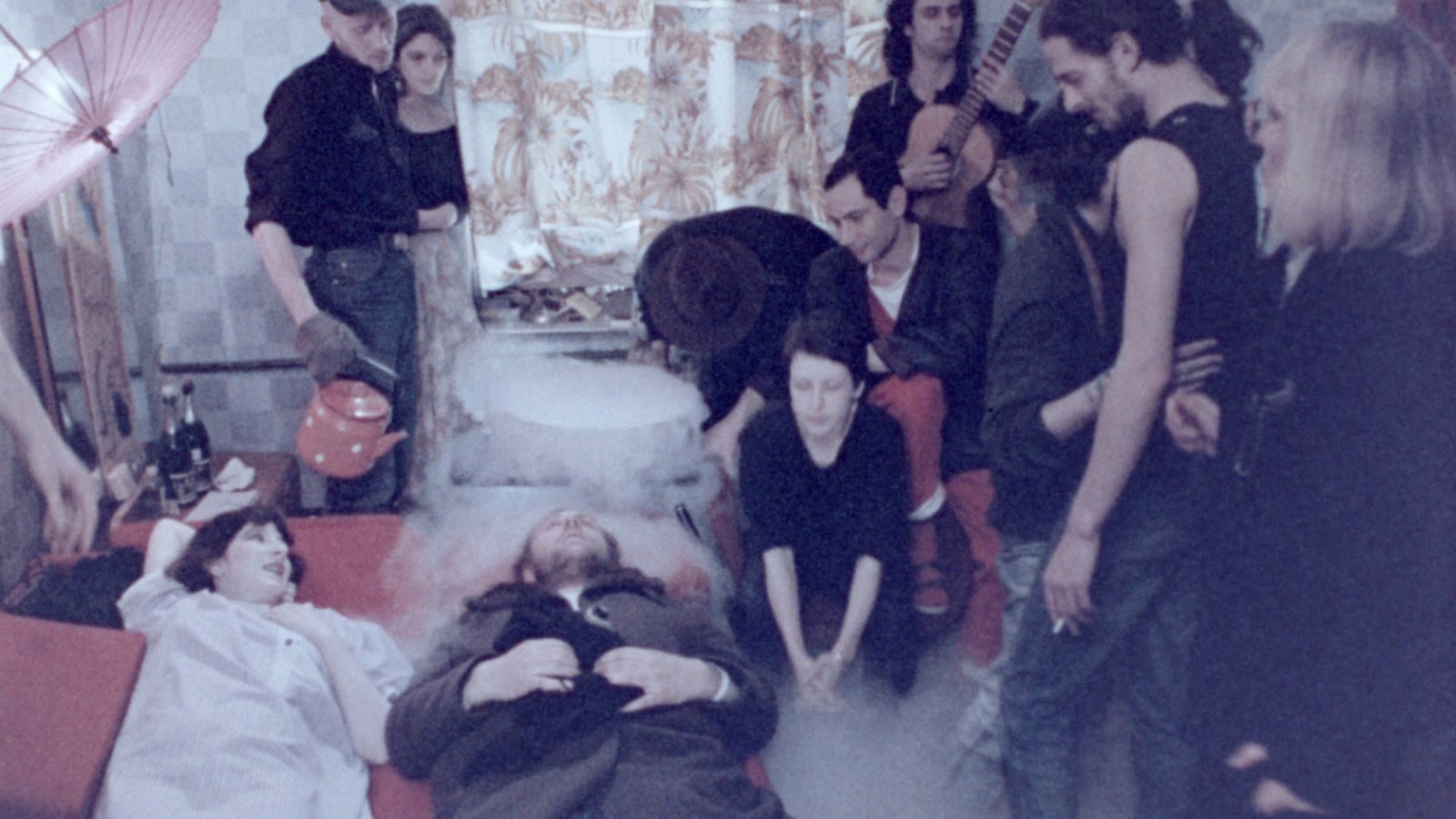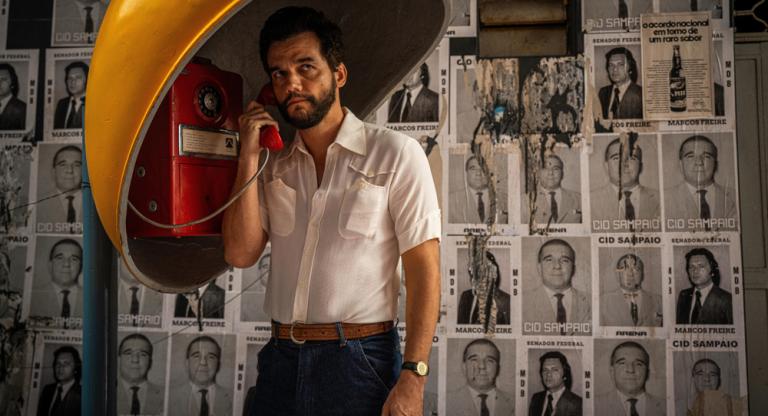The final Soviet-era film of Kira Muratova, a great Ukrainian filmmaker largely unheralded in the U.S. whose career spanned from the 1960s to the 2010s, The Asthenic Syndrome (1989) is often discussed as both a reflexive statement on the somnambulant decline of the Soviet Union and a harsh critique of the state-industry that regularly censored Muratova’s films. But it is also a very playful and funny film, a work of revelry against both the staid Socialist Realism of Soviet cinema and the lulling arthouse works that were following in Andrei Tarkovsky’s example.
Muratova’s film is split into two distinct sections, often mischaracterized as halves. The first 40 minutes play as a black-and-white parody of what Muratova’s own cinema was accused of: work rife with aesthetic formalism contra to socialist realism that’s about listlessness and embourgeoisement. The sequence begins with a funeral for the husband of our heroine, Natasha (Olga Antonova), who is quickly sent into an ornery and horny anti-social spiral. This prelude to the “real” film ends with the film cutting to color as the lights come up in a theater, with the actress being presented for a Q&A to an upset audience shambling out, on the verge of fighting. The moderator implores them that this is “real cinema that we can talk about, ask questions,” the cinema of “German, Sokurov, and Muratova.”
This switch is where The Asthenic Syndrome reveals itself to be the Glasnost film par excellence, a work free from previous censorial constraints, but spinning around in a culture torn between new freedoms and older state-sanctioned ideals. Left sleeping in the theater is the schoolteacher Nikolai (played by Muratova regular Sergei Popov, who also co-wrote the film), a man plagued by the titular asthenic syndrome, which has him falling asleep in the most inappropriate places, tiredly wandering between classrooms, political meetings, and artist studios. Nikolai’s condition mirrors that of his exhausted nation, which was both bursting with excitement about newfound freedoms and fraying at its foundations under President Mikhail Gorbachev. Toward the end of his narcoleptic picaresque, Nikolai awakes to find himself in a madhouse. It’s a place that’s limited by the walls and rules of the asylum, but whose occupants’ minds remain liberated—a microcosm, perhaps, of the Soviet institutions he’d been passing through.
The Asthenic Syndrome screens this evening, May 16, as well as on May 20 and May 25, at Film at Lincoln Center as part of the series “Kira Muratova: Scenographies of Chaos.”



